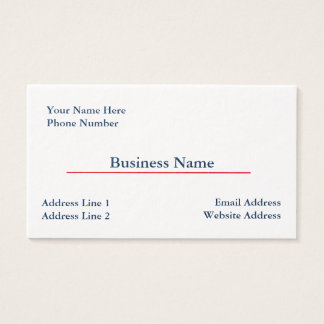You might feel personally attacked by this question, but it’s a legitimate one—and one that’s been on minds of most bosses in all industries, especially in the past couple of decades. According to one study of 10,000 adults across 28 different countries, 42% of adults admit to habitually overstating how busy they are, with 60% believing their peers overstate their levels of busyness. Given that this is a self-reported survey, we can probably assume those numbers are even higher.
Why might you exaggerate how busy you are? There’s a chance you could get out of doing work if your boss already thinks your schedule is full, but in most cases, it’s due to competitive pressures. Being busy is something of a status symbol; claiming you’re busy makes you seem more diligent than your peers, and makes you seem more indispensable.
So, what can you do to find out how busy you really are?
1. Use a time-tracking tool
First, try to get a relative gauge of how busy you are by using a time-tracking tool. There’s a chance you’ve succumbed to the temptation of busy bragging, and you might have convinced yourself you have more responsibilities than you actually do. Start by using a time-tracking app such as Toggl or RescueTime to track your activity throughout the day. You can also ask your peers about things like how many hours they spend working each week, how many projects they’re handling, and what their expectations are.
2. Compare your past and present responsibilities
Pretend like you’re writing a job description. Take inventory of all the current responsibilities you handle, and approximately how much of your time those responsibilities eat up. Get yourself fully familiar with how your role has evolved, as well as the sum total of all the tasks and responsibilities you handle on a regular basis. To get a perspective on how your responsibilities have changed over time, compare this list of responsibilities to the job description for the position you originally filled, the job description of one of your peers, or the responsibilities you had when you first started your business.
3. Measure your email activity
Email is a strong indicator of how busy you are, and for several reasons. First, email takes time out of your day, so the more emails you’re sending and receiving, the busier you are (in general). Second, for many modern jobs, almost everything you do is tied to email in some way, whether you’re sending and receiving emails about a new project or reaching out to a team member for an update. Perhaps most important, email is unalterable; you can’t claim to have sent 200 emails in a day unless you have the records to back it up. Check out this list of Gmail extensions that will help you measure and improve your productivity.
4. Track your time in meetings and scheduled events
You probably keep a detailed record of your work schedule, including formal events and meetings, which take up hours of your time—and meetings probably take up more of your time than you or your boss realize. According to a ReadyTalk infographic, employees spend about a third of their total time in meetings. This can help you drive home just how many hours you’re spending in the office—and where those hours are being spent.
5. Measure your achievements
Finally, consider estimating your busyness in terms of the results you’re able to achieve, since actual achievements are the real bottom line. This is going to vary based on your industry and position, but may include things like sales, leads generated, traffic increased, bugs fixed, or articles written. Even if you can’t prove that you’re spending more time than the average worker, you can prove that you’re worth more than the average worker. You can measure your results using one of the productivity-tracking tools on the market.
Having the evidence to support how busy you are is important, but so is the way you present that evidence to your boss. Use these tips to determine key takeaways and goals beforehand, and frame your conversation in the context of action items and suggestions.
For example, you might show how much of your time is consumed by meetings, and suggest that these meetings be shortened (or, in some cases, canceled altogether). Or, if you’re proud of how busy you are, you could position this as an opportunity to delegate more responsibilities, ask for a raise, or ask for a new title to reflect the significance of your new workload. This is your chance to make something meaningful happen, so take it.
15% Off All Business Cards
VIEW ALL
$44.25
$58.55
$68.95
$65.40





No comments:
Post a Comment